How PathFinders is preventing migrant domestic workers and their children from slipping through the cracks in Hong Kong
PathFinders believes that no child should be born without an identity, basic requirements, healthcare or a place to live.
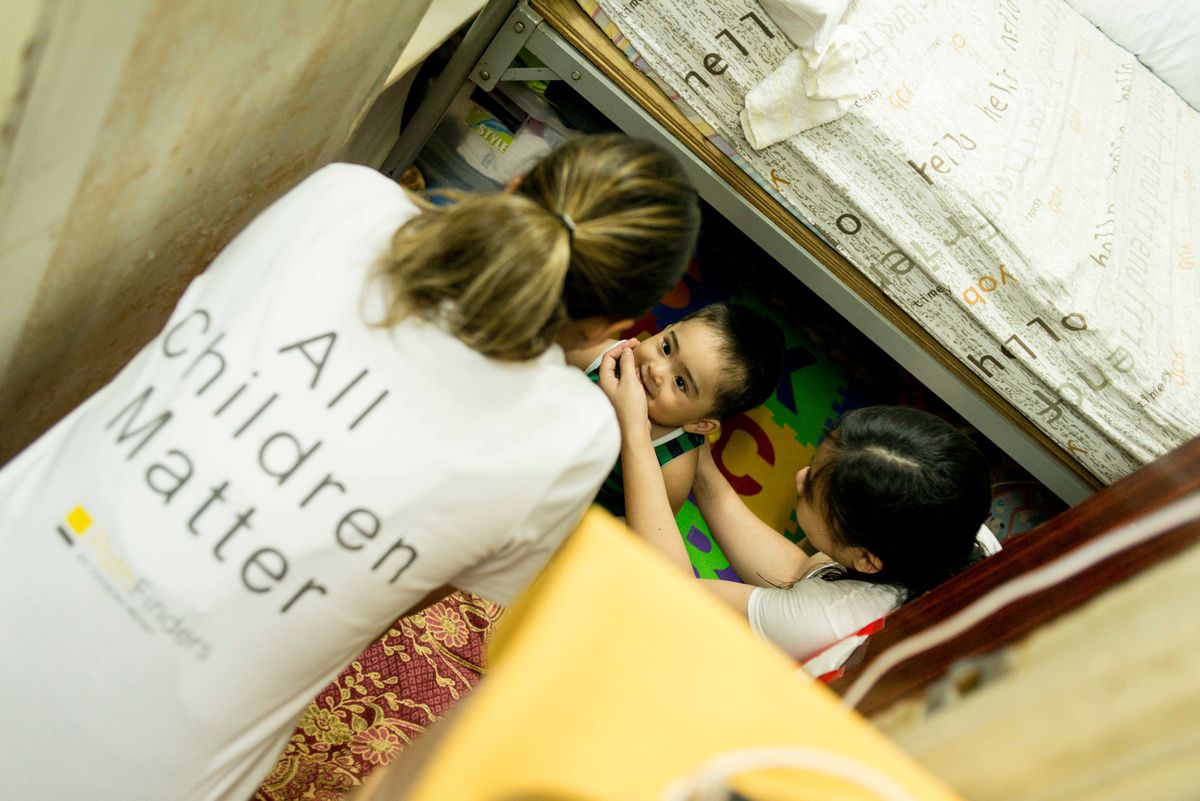
Migrant domestic workers (MDWs) are an important source of assistance for many Hong Kong homes, particularly those with young children and the elderly. In fact, the number of MDWs in Hong Kong is expected to rise as high as 600,000 to help care for the aging population. But in many cases, if an MDW gets pregnant, many of these expecting moms are wrongfully fired or coerced to leave or resign because they and their employers are at a loss for what to do.
When a pregnant MDW loses her job, she faces significant challenges. They often become homeless, and when their work visa expires, they lose access to essential public welfare and healthcare facilities for prenatal screening.
Those who can’t return home due to fear of persecution by family and friends for being unemployed, single mothers leave their children undocumented, stateless and without access to basic services such as medical care and immunizations, shelter and education.
These babies and their mothers, who are frequently poor, are among the most vulnerable and underserved in Hong Kong.
Kylie Uebergang and Melissa Mowbray-d'Arbela began their journey in 2007 when they rescued four kids born to migrant women, realizing there was a gap in Hong Kong where women and babies go unregistered and unprotected.
So, Uebergang and Mowbray-d’Arbela co-founded PathFinders, a Hong Kong organization that focuses on the special vulnerabilities of children born to migrant mothers. So far, the group’s assisted over 10,000 newborns, toddlers and mothers since its inception in 2008. PathFinders believes that no child should be born without an identity, basic requirements, healthcare or a place to live.
TMS spoke with Carmen Lam, Deputy CEO of PathFinders, about how she became involved in the organization and how the group is working to bridge this gap in Hong Kong society. Lam worked for decades in the non-profit sector helping thousands of ethnic minorities, migrant workers, refugees, asylum seekers and individuals with mental disabilities before joining PathFinders in 2013.
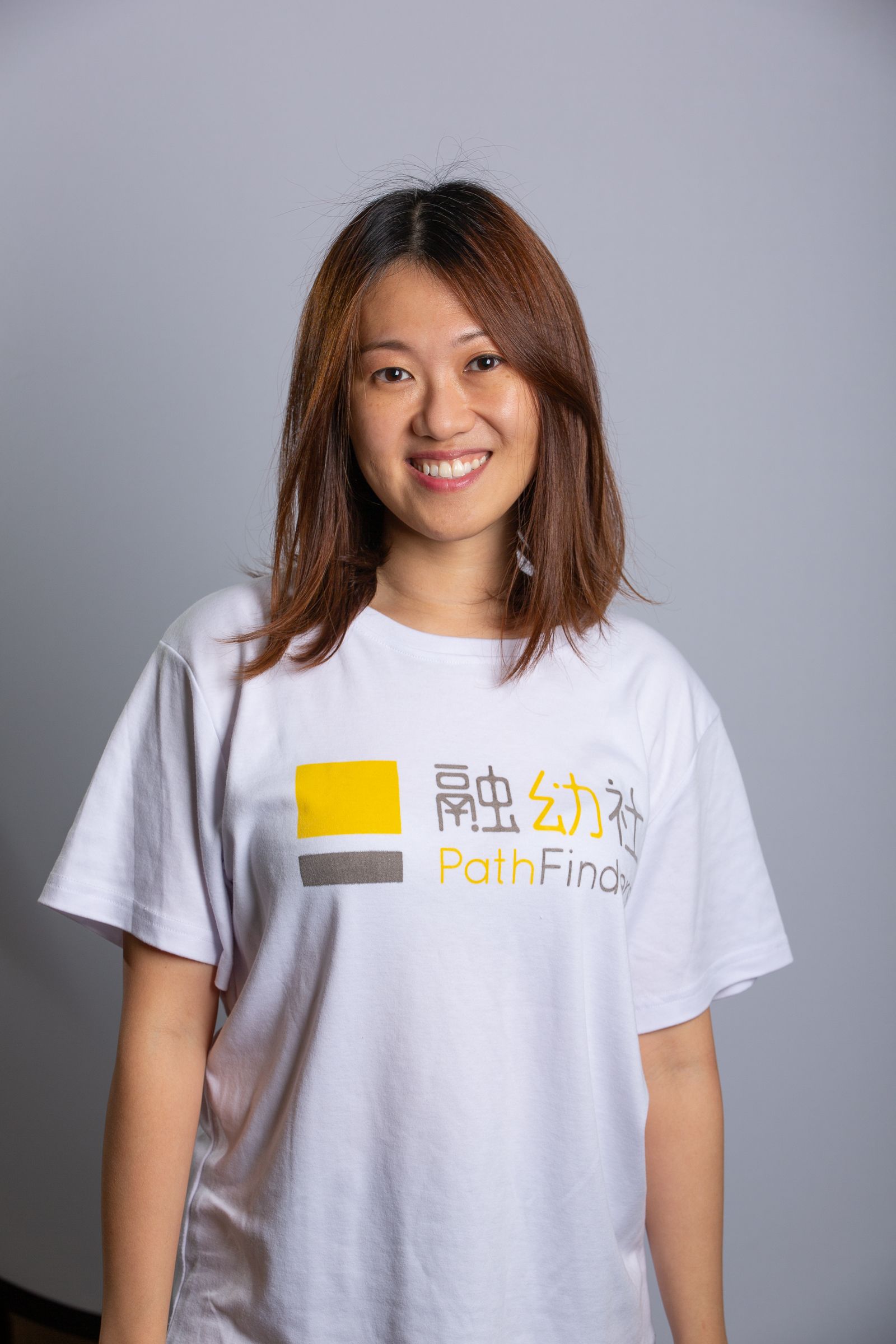
Q: You joined PathFinders in 2013, and you’ve spent most of your career in social work and the NGO sector. What areas interest you the most?
In my career journey working in the NGO sector, the specific area that I found most interesting is I have had the privilege to come across so many different individuals who come from all walks of life with diverse backgrounds. I worked in the humanitarian industry for over a decade, and I worked with ethnic minorities throughout my career, no matter whether I was in the United States, Canada or Hong Kong.
I worked with unprivileged children in foster care and a juvenile center in Baltimore, US. I worked with people with mental illnesses at a psychiatric rehabilitation program. I also worked with hundreds of asylum seekers and refugees in Hong Kong. I have worked with the victims of human trafficking in Canada. Because of these diverse experiences, I have seen the challenges all these people face regardless of where they come from. They all have their strengths and uniqueness to overcome challenges in their predicament. It is truly inspiring to me.
Q: How did you find PathFinders? Or did they find you?
In 2013, I joined PathFinders because of the founder, Kylie Uebergang. We had a meeting at my previous job when I was working at Caritas Hong Kong for a UNHCR project as a Social Counselor to explore the possibility of collaboration, as we were serving similar clientele in the field. I was intrigued by the vision and mission of PathFinders. Later on, I joined PathFinders and started my new career path.
Q: How did you decide to study social work at university? Was there something in particular that drew you to that field?
Social justice is something that I hold on to dearly because I have witnessed bullying in high school. I could see the pain and vulnerability of the victims, but others were so afraid to speak up or offer any help. Because of this reason, I determined my career goal is to become a social worker and be the voice of others.
When it came to choosing my major at university in the States, while many other Asians were studying biology, finance or accounting, I was the only Asian in the class of social work. It was an interesting and life-changing experience as a minority student in class. It also had a great impact on my career journey in the future.
Q: You’re familiar with the social welfare systems of the US, Canada and Hong Kong. What is particularly strong about Hong Kong’s system?
The Hong Kong social welfare system is comparatively more well-established and holistic in serving the locals and providing welfare assistance to the most vulnerable individuals.
Q: What would you like to see changed or improved in Hong Kong’s social welfare system?
Enhance inclusiveness for ethnic minorities and strengthen the community reintegration for people who suffer from mental disabilities. We should focus on deinstitutionalization and creating more space and support for underprivileged individuals. Space is a controversial topic for many people who are residing in Hong Kong.
There are 340,000 migrant domestic workers in Hong Kong, but they have to rest in a cramped public space on their day off. In addition, there are barely any community resources available on public holidays to cater to their needs. I would like to see some changes and improvements around these areas in the social welfare system.
Q: What is something you’d like more people to know about migrant domestic workers, single mothers and other vulnerable groups in Hong Kong?
Migrant domestic workers are also entitled to maternity rights while working in Hong Kong. It is illegal to terminate a domestic worker due to pregnancy.
Q: What is the most challenging part of your job?
The most challenging part of my job is to see people suffering and children in the most vulnerable and undesirable situations without a choice and a future.
Q: What is the most fulfilling part of your job?
To see people making positive changes and overcoming their struggles to live a better life. It is the most rewarding. My professional goal has always been to work as a social worker to make changes in the world. I want to live a life as meaningful as I can, and everyone has a fair chance to succeed in life. This is driven by a strong passion for helping those who are in need. I am always striven by my compassion to assist people who are less fortunate and disadvantaged in the community. I hope I can utilize my knowledge and skills to create a positive influence on the next generation.
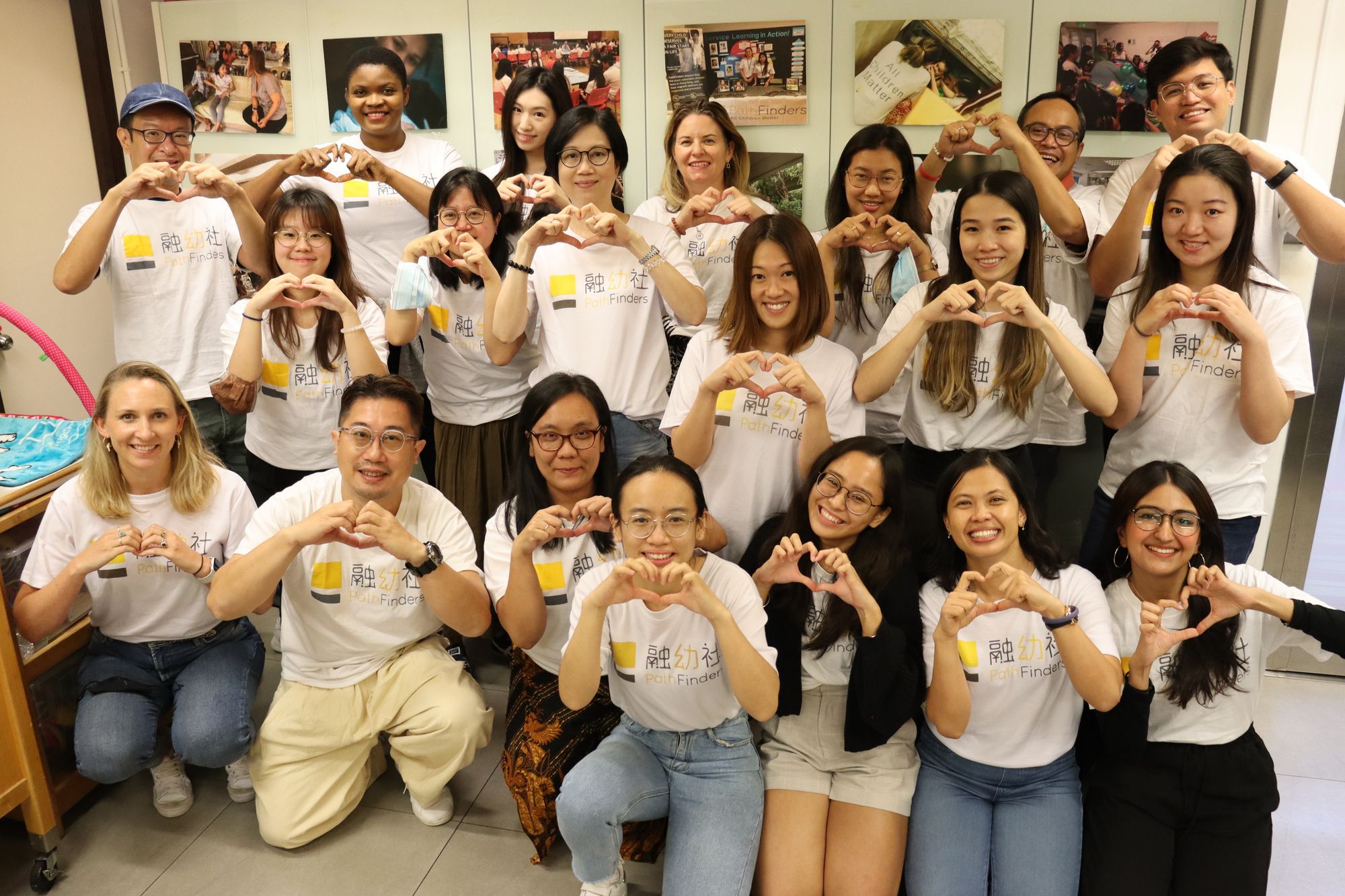
Q: For people unfamiliar with PathFinders, can you tell us a bit more about it?
PathFinders is the only Hong Kong charity dedicated to supporting the unique vulnerabilities of children born to migrant mothers – predominantly current or former MDWs.
We are guided by the fundamental belief that all children deserve a fair start in life. Every year 500 children and their migrant mothers seek our specialist care and protection. Since 2008, PathFinders has helped over 10,400 migrant mothers and children facing crisis find a path to a brighter future.
Q: How did it get started?
The journey began in 2007 when co-founders Kylie Uebergang and Melissa Mowbray-d’Arbela rescued four babies born to migrant women in Hong Kong. Identifying a gap in Hong Kong society where women and babies go undocumented and unprotected, PathFinders was founded to bridge the gap on the belief that no child should be born alone and deprived of medical support, shelter and identity.
This year is particularly special and meaningful for PathFinders as we’re turning 15!
Q: What is different about the PathFinders shelter from other similar shelters in Hong Kong?
There are a few shelters in Hong Kong that welcome MDWs, but our shelter is unique as it is the only one set up for pregnant women, mothers and babies.
We do not use bunk beds to avoid the risk of falls and provide baby cribs for safe sleeping, and when babies cry in the night, other shelter residents are accommodating and understanding.
We also provide a kitchen and food coupons to allow mothers to cook the food they crave, warm baby bottles and introduce solid foods to their babies.
With regular visits from our Case Managers, our shelter is especially critical for mothers considering adoption or those who have been physically or sexually abused. These particularly sensitive cases require extra care and an environment free from judgment and prejudice.
Our shelter has been around for more than 10 years. It is not just a safe place to stay but also a stepping stone toward stability.
Q: How can an average person help get involved with the cause?
We can't do what we do without your generous support. There are numerous ways you can help by either donating money, volunteering your time and expertise, partnering with us, donating baby supplies or simply spreading the word about our service! Please call the PathFinders hotline at 5190 4886 or check our social media/website.
Q: What is a day of volunteer work like with PathFinders?
We are truly blessed that all our volunteers are incredibly passionate about our mission and want to contribute to the MDW community we serve.
Whether it's assisting case workers in caring for migrant mothers, supporting education workshops, or arranging essential supplies for mothers and children, they always demonstrate skills and compassion that are invaluable to the team.
Q: How did COVID affect PathFinders?
At the peak of the fifth wave of the COVID pandemic, we witnessed an alarming rise in workers being left homeless on testing COVID positive.
As a core member of the MDW Coalition, comprising 18+ organizations serving the MDW community, PathFinders played a key role in helping secure immediate and temporary shelter for MDWs who were left homeless on testing COVID positive.
As part of our own response, we provided counseling, monitored symptoms and distributed care packages to migrant mothers and children, some who tested COVID positive. We supported our Ambassadors, who provided support and guidance to their peers and shared MDW Coalition information resources. We also hosted online mental health and well-being sessions to support our team's strength and resilience during these challenging moments.
Q: What's the most common reason someone seeks out PathFinders for help?
Most of the pregnancies we see are unplanned; as a result, the expectant mother may conceal her pregnancy, resign or their employment contract may be terminated as neither they or their employer know what else to do.
When this happens, the expectant mother immediately becomes homeless, and within 2 weeks, when her working visa expires, she loses access to healthcare vital for her unborn child.
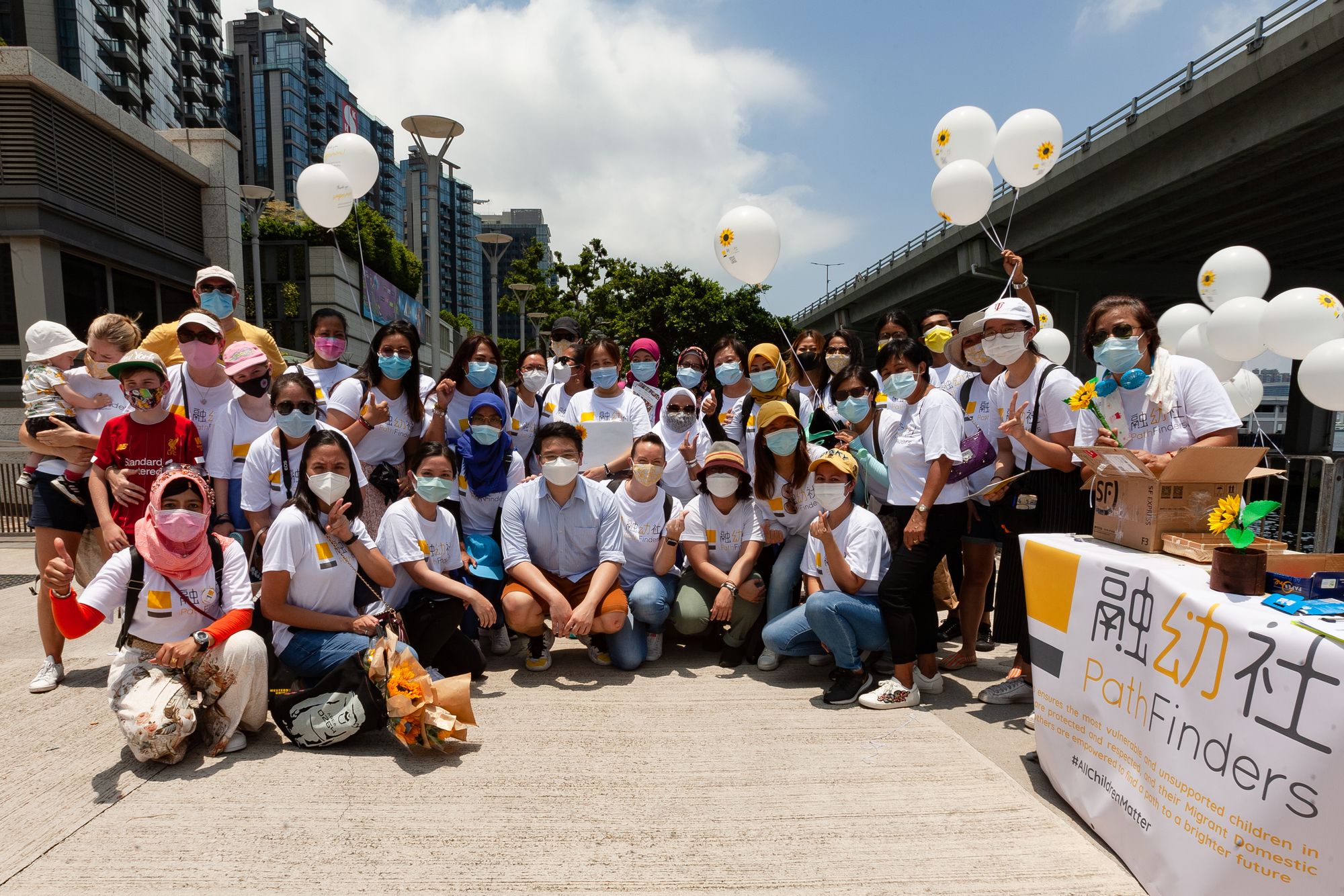
Q: PathFinders partners with schools and students looking to support the cause. Can you tell us more about that?
At PathFinders, we view the next generation as our Pioneers – future migrant domestic worker employers and Hong Kong policymakers equipped with relevant knowledge to make the right decision in the future. They are truly a force for systemic and sustainable change driven by their raw passion, fresh perspectives and boundless energy.
Investing in the next generation has significantly increased our engagement with individual students, year groups and entire schools.
Some of the ways that we engage with them include assembly presentations, volunteering, awareness events, CAS projects and, most recently, integration of PathFinders materials in units of inquiries.
To educate and engage children in our work, we created the Pioneer Pack, an educational and highly-interactive resource for children based on the Nurturing Care Framework. Besides acquiring knowledge, children can cultivate character values (kindness, empathy and generosity), confidence and leadership qualities in the process of completing the activities and challenges.
Q: Are there any other NGOs that Pathfinders works with?
Alone we are strong. Together we are stronger! We just can't do what we do without strong collaboration between all our valued partners, including government, service, community and campaign partners, as we strive towards a fair start for all children in Hong Kong.
Q: You also have place to sign up for your newsletter on the site. What can we expect in the PathFinders newsletter?
Our newsletter features our latest updates and activities, as well as inspiring beneficiaries' stories. Just reading and sharing our news is one way of volunteering and a big help in supporting our work and the MDW community.
Q: You have the option for supporters to “leave a legacy” by including PathFinders in their will. Are there a lot of people that have supported the cause this way?
Our hope is that in the next 10 - 20 years, PathFinders will no longer be needed like it is currently.
Our legacy program is a new initiative born out of our desire to achieve a self-sustained assistive model where the community that we serve has the resources that they need to address any challenges related to migrant mother pregnancies.
As a new initiative, we have yet to receive interest but are positive that, in due course, it will gain attention.
Q: Any tips you can give people looking to help out by donating supplies?
We collect essential newborn and maternity supplies for babies and mothers who desperately need our support. Sadly, due to manpower and storage constraints, we are unable to accept certain items. Please check our social media/website for updates/details.
Q: Are there any upcoming events or fundraisers that you’d like people to look out for?
This year is our 15th anniversary, and we have lined up a number of events where the public can learn about our work, the future we desire for migrant mothers and their children, and how they can contribute. Amongst them are our Mother’s Day Lunch and Appeal in May, the No Child Left Behind Exhibition display in July/August and our Annual Gala Event and Public Appeal in November.
Please keep an eye out for our Newsletter and emails as we announce these events, and kindly do us the honor of participating.
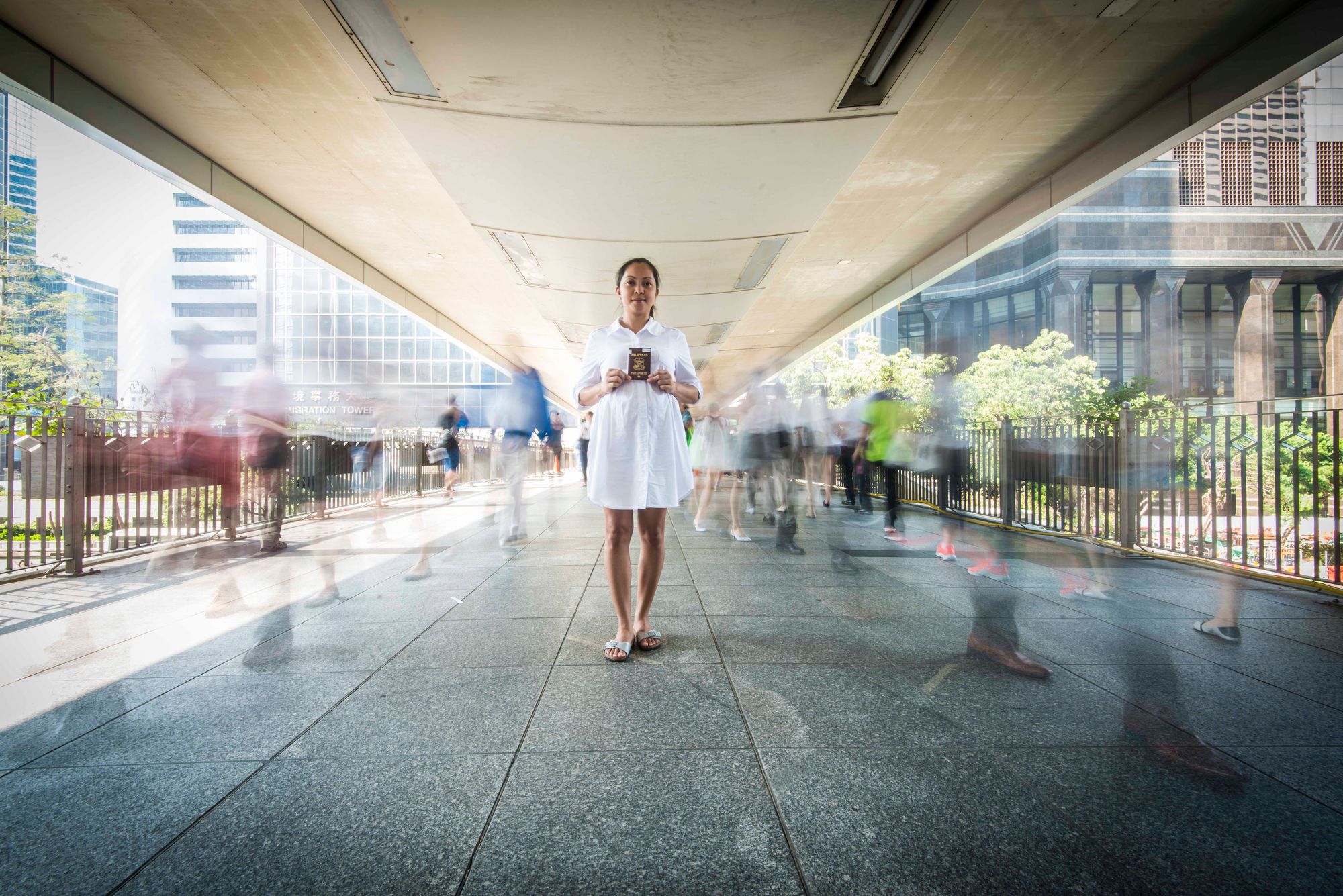
Q: What would you like Hong Kongers to know about MDWs in the region?
For the past 50 years, MDWs have migrated to Hong Kong to provide for their families while also helping to improve our livelihoods. As a result, they have made an enormous social and economic contribution to the city.
Many of the MDWs in Hong Kong are mothers from the Philippines and Indonesia who made the very difficult decision to leave their children behind in order to work overseas and create brighter futures for them. Sadly, despite their sacrifices, the precious contribution of MDWs has long been undervalued in our society.
If you employ an MDW who is also a mother, please encourage and allow her to take short breaks during the day to stay connected with her children. It takes a village to raise a child. Indeed, helping children grow in a safe, trusting and healthy environment takes a lot of work and the support of many people. It is especially challenging for migrant mothers who have no choice but to leave their children behind while struggling to parent them and keep their relationship alive from thousands of miles away.
Over the past 15 years, PathFinders has been at the forefront of efforts to enhance the community's understanding and care for migrant mothers and their children. As part of our ongoing #WorkingMomsHK campaign, we’ve launched "No Child Left Behind: A Mother's Love Knows No Borders," a virtual exhibition in collaboration with award-winning photographer Xyza Cruz Bacani, which celebrates the unparalleled strength and resilience of all MDW mothers.
Q: Why is this segment of society particularly vulnerable? What kinds of issues do they have to deal with?
Hong Kong currently employs 340,000 MDWs, with the number forecast to rise to 600,000 to help us care for our rapidly aging population. Many MDWs are women of childbearing age who lack reproductive health knowledge.
PathFinders, therefore, adopts an educational and preventative approach toward ensuring every pregnancy is considered and planned, thereby enabling a clear, stable and brighter future path to be established for every child.
Q: What is the process like for someone seeking help from PathFinders?
We intervene during crisis to provide comfort, care and counseling to ensure migrant mothers have access to the critical information and support they need to address emotional, immigration, medical, employment and security concerns.
We provide access to emergency shelter, essential supplies, healthcare and education.
We also facilitate referrals to key service partners for more specialized support, including for legal matters, domestic violence, drug abuse, contraception, non-essential supplies and child developmental delays.
In addition, we ensure abandoned and vulnerable children are protected and placed in a loving and stable family environment as quickly as possible.
Like any other NGO, our key motivation is to ensure we are no longer needed today in the same way tomorrow as we are today – to effectively create impact and drive social change.
To this end, we focus on preventing crisis by empowering MDWs as PathFinders Ambassadors and community leaders to engage and educate their peers to make well-informed life decisions while working in Hong Kong.
We also support employers, as many aren’t aware of their legal obligation to provide maternity leave and how important it is for the mother to maintain job security in the best interest of her child.
We also engage with the general public to increase understanding, acceptance and support for children born to MDWs, and seek to inspire systemic change by ensuring that policies and solutions exist to protect pregnant MDWs and their children.
At the moment, a key component of our systemic change strategy is to understand the challenges faced by employers when their worker becomes pregnant, so we can work toward providing solutions that enable them to offer job security and ongoing access to public services
And ultimately, we want to encourage the community to bring more understanding, trust and respect to MDWs in general.
Q: What is one of the biggest challenges PathFinders faces today in helping MDWs?
The majority of the 340,000 MDWs employed in Hong Kong are of childbearing age. Many lack reproductive health knowledge and often need a healthy perception of love and relationships.
Discussing birth control or contraception options with MDWs, for example, can be challenging – particularly given a general lack of public acceptance and objections on the grounds of religious reasons (Catholic and Muslim).
Q: If you could change or introduce one new piece of legislation to help the cause, what would it be?
PathFinders is interested in developing a temporary substitute worker program so employers can cover all forms of MDW leave – annual, sick leave and maternity.
For this to be possible, amendments to the standard two-year FDH contract and live-in rule are needed. Currently, under the standard two-year employment agreement, MDWs can’t work on short-term contracts, and they are required to live within their employer’s residence.
While exemption from the live-in rule is possible under exceptional circumstances, clarity is needed on what kinds of MDW circumstances qualify.
If employers can obtain temporary relief cover that helps to maintain the smooth functioning of their households – a practical solution – this may help them to fulfill their legal obligation to provide pregnant MDWs with maternity protection and ensure their freedom from termination.
This way, two key outcomes are achieved, the MDW and her baby maintain access to vital pre and postnatal healthcare, and she retains job security.
Q: You work with a lot of pregnant MDWs. In the case of someone deciding not to keep the baby, does PathFinders offer help in this situation? What options are there for these women?
In general, there are three parenting options:
-Parenting – Continue with the pregnancy. Prepare for the birth of a baby and plan to raise it.
-Adoption – Continue with the pregnancy. Prepare to place it up for legal adoption in Hong Kong or in their home country.
-Abortion – Terminate the pregnancy. This can be conducted legally in Hong Kong by government hospitals or family planning clinics at an early stage.
There are pros and cons to each choice, so please weigh them carefully and seriously. Our case manager will, in a non-judgmental manner, help guide and counsel anyone who approaches us for assistance.
Q: Is it common for MDWs to be fired if their employer or agency finds out they are pregnant?
In a survey we published last year, we found that MDWs are more prone to unlawful dismissals and coerced resignation due to pregnancy. While employers are heavily reliant on MDWs to run their households, they generally lack knowledge of MDW maternity rights and protection and hold negative opinions of MDW pregnancies.
These are some of our key findings:
- Main reasons for hiring MDWs include carrying out household chores (93%), childcare (67%) and eldercare (32%). This points to a heavy reliance on paid domestic help to run households.
- Employers predominantly used employment agencies to search for and hire their MDWs (99%). All also believed employment agencies should assist employers in the case of an MDW pregnancy.
- Employers demonstrated low levels of knowledge of maternity protections available to MDWs under labor and anti-sex discrimination regulations. Only 51% of respondents were aware MDWs are eligible for maternity leave.
- Employers were negative towards statements that were "in favor" of pregnant MDWs while being more positive towards statements in their interest. 81% did not know MDWs can take legal action if their employers fail to provide maternity leave, while 84% said they could dismiss their pregnant MDW as she would not be able to perform her work duties.
- 66% of statements from employers said they felt nonprofits supported MDWs more than employers and there was a lack of regulation to support employer needs and concerns.
As much as we find the survey results unsettling, they also reaffirm our ongoing effort to raise awareness of MDW maternity protections amongst diverse stakeholders, reinforce the importance of mutual understanding and open communication between employers and MDWs, as well as validate our need to work closely with employment agencies.
We urge the community to work together to address the issue and come up with relevant solutions to ensure both employers' and MDWs' rights are adequately safeguarded, fundamentally to protect and respect the unborn child.
Q: How often does PathFinders help provide legal help to MDWs in the case of unfair treatment from their employer or agency?
In addition to providing migrant mothers access to emergency shelter, essential supplies, healthcare and education, we also facilitate referrals to key service partners for more specialized support, including for legal matters, domestic violence, drug abuse, family planning, non-essential supplies and child developmental delays.
Q: PathFinders also offers resources to give MDWs parenting skills. Why is this such a critical resource you offer?
The period from pregnancy to age 3 is the most critical when the brain grows faster than at any other time. For healthy brain development, children need nurturing care – a safe, secure and loving environment with the right nutrition and stimulation from their parents or caregivers.
At PathFinders, we teach MDW mothers the importance of responsive caregiving and opportunities for early learning to lay strong foundations for health and wellbeing that last a lifetime – and carry through to the next generation.




Comments ()